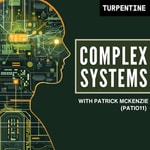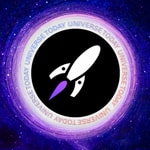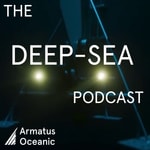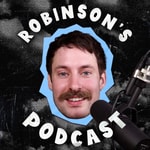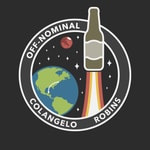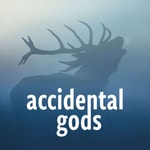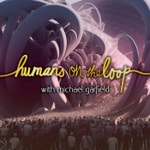MULTIVERSES – Détails, épisodes et analyse
Détails du podcast
Informations techniques et générales issues du flux RSS du podcast.

MULTIVERSES
James Robinson
Fréquence : 1 épisode/19j. Total Éps: 39

Coffee table conversations with people thinking about foundational issues. Multiverses explores the limits of knowledge and technology. Does quantum mechanics tell us that our world is one of many? Will AI make us intellectually lazy, or expand our cognitive range? Is time a thing in itself or a measure of change? Join James Robinson as he tries to find out.
Classements récents
Dernières positions dans les classements Apple Podcasts et Spotify.
Apple Podcasts
🇨🇦 Canada - physics
13/08/2025#90🇬🇧 Grande Bretagne - physics
13/08/2025#61🇩🇪 Allemagne - physics
13/08/2025#83🇺🇸 États-Unis - physics
13/08/2025#71🇨🇦 Canada - physics
12/08/2025#90🇬🇧 Grande Bretagne - physics
12/08/2025#59🇩🇪 Allemagne - physics
12/08/2025#83🇺🇸 États-Unis - physics
12/08/2025#63🇨🇦 Canada - physics
11/08/2025#89🇬🇧 Grande Bretagne - physics
11/08/2025#55
Spotify
Aucun classement récent disponible
Liens partagés entre épisodes et podcasts
Liens présents dans les descriptions d'épisodes et autres podcasts les utilisant également.
See all- https://twitter.com/samillingworth
281 partages
- https://twitter.com/CJHandmer
9 partages
- https://twitter.com/haraldwiltsche/
1 partage
- https://longnow.org/
16 partages
- https://terraformindustries.com/
15 partages
Qualité et score du flux RSS
Évaluation technique de la qualité et de la structure du flux RSS.
See allScore global : 53%
Historique des publications
Répartition mensuelle des publications d'épisodes au fil des années.
34| Animal Minds — Kristin Andrews on why assuming consciousness would aid science
Saison 1 · Épisode 34
mardi 27 août 2024 • Durée 01:14:57
There is no consensus on what minds are, but there is plenty of agreement on where they can be found: in humans. Yet human consciousness may account for only a small proportion of the consciousness on our planet.
Our guest, Kristin Andrews, is a Professor of Animal Minds at the University of York, Ontario, Canada. She is a philosopher working in close contact with biologists and cognitive scientists and has spent time living in the jungle to observe research on orangutans.
Kristin notes that comparative psychology has historically resisted attributing such things as intentions, learning, consciousness, and minds to animals. Yet she argues that this is misguided in the light of the evidence, that often the best way to make sense of the complexity of animal behavior is to invoke minds and intentional concepts.
Recently Kristin has proposed that the default assumption — the null hypothesis — should be that animals have minds. Currently, biologists examine markers of consciousness on a species-by-species basis, for example looking for the presence of pain receptor skills, and preferential tradeoffs in behavior. But everywhere we have looked, even in tiny nematode worms, we find multiple markers present. Kristin reasons that switching the focus from asking "where are the minds?" to "what sort of minds are there?" would prove more fruitful.
The question of consciousness and AI is at the forefront of popular discourse, but to make progress on a scientific theory of mind we should draw on the richer data of the natural world.
- Kristin's website has links to her books and papers.
- As an introduction to her thinking How To Study Animal Minds is a gem of a book.
33| Taking Chance Seriously — Alastair Wilson on Quantum Modal Realism
Saison 1 · Épisode 33
vendredi 19 juillet 2024 • Durée 01:25:35
Things happen. Or they don’t. How then should we make sense of claims that something might happen?
If all these claims do is express doubt, then the puzzle can be easily resolved. But if the claims capture some objective feature of the world, what is it?
Our guest is Alastair Wilson, a professor of philosophy at the University of Leeds. He takes chance seriously, in particular, he is a realist about our modal claims (claims like “either candidate could win” or “if Szilard hadn’t got Spanish flu, the atom bomb would not have been invented”) may be true or false, not just opinions or expressions of ignorance.
Alastair does this by connecting our modal talk to Everettian quantum mechanics. He argues that modal claims are assertions about the many worlds within the universal wavefunction. If in all worlds where Szilard did not succumb to Spanish flu, the atom bomb was never invented, then this claim would be true.
It is a bold and fascinating way of bringing physics and metaphysics together. What can happen, what is possible, what could have been? These become questions for natural science.
24| How Philosophy Serves Science — David Papineau
Saison 1 · Épisode 24
jeudi 1 février 2024 • Durée 01:16:26
Are philosophy and science entirely different paradigms for thinking about the world? Or should we think of them as continuous: overlapping in their concerns and complementary in their tools?
David Papineau is a professor at Kings College London and the author of over a dozen books. He's thought about many topics — consciousness, causation the arrow of time, the interpretation of quantum mechanics — and in all of these he advocates engagement with science. The philosopher should take its cue from our best theories of nature.For example, a philosophical account of causation must pay attention to the way this concept is used in the sciences.
But the philosopher can also be a servant of science. Philosophers are undaunted, excited even, by apparent paradoxes and where such thorny problems pop up in science this is where philosophical tools can be brought to bear. For instance, when quantum mechanics appears to suggest cats are alive and dead, the philosopher's interest is piqued (even as the physicist's attention may wane).
- David's website
- Transcript and notes on Multiverses.xyz
Chapters
(00:00) Intro
(02:41) Start of conversation
(02:46) Unraveling the Mystery of Scientific Methods
(03:45) The Shift in Philosophy of Science
(04:03) The Role of Truth in Scientific Investigation
(05:34) The Evolution of Scientific Methodologies
(06:32) The Arrogance of Philosophy in Science
(08:58) The Progress of Science and its Challenges
(10:21) The Role of Data in Scientific Disputes
(11:26) The Struggle of Early Modern Science
(14:52) The Continuity of Philosophy and Science
(15:28) The Role of Philosophy in Resolving Theoretical Contradictions
(18:08) The Replication Crisis in Science
(32:15) The Asymmetry of Time & Thermodynamics
(42:45) The Everlasting Role of Philosophy in Science?
(42:53) Philosophy and Its Puzzling Subjects
(43:55) Artificial Intelligence & Philosophy
(44:39) The Turing Test and AI
(45:18) The Consciousness of AI
(46:11) The Mystery of Consciousness
(46:51) Is there a fact of the matter to consciousness?
(48:59) The Consciousness of Machines
(50:13) Different takes on consciousness
(51:43) The Consciousness of Artificial Intelligence
(53:23) Consciousness & Emergence
(53:59) The Moral Standing of AI
(01:05:23) The Future of Causation Studies
23| Paulina Sliwa — Moral philosophy as puzzles of daily life
Saison 1 · Épisode 23
jeudi 18 janvier 2024 • Durée 01:11:58
Why do men do less housework? What happens when an apology is offered? What are we looking for when we ask for advice?
These are the sorts of problems drawn from everyday experience that Paulina Sliwa intends to resolve and in doing so make sense of the ways we negotiate blame and responsibility.
Paulina is a Professor of Moral & Political Philosophy at the University of Vienna. She looks carefully at evidence accessible to us all — daily conversations, testimony from shows like This American Life, and our own perceptions — and uses these to unravel our moral practices. The results are sometimes surprising yet always grounded. For example, Paulina argues that remorse is not an essential feature of an apology, nor is accepting that behavior was unjustified.
This is illuminating for its insights into moral problems, but I also really enjoyed seeing how Paulina thinks, it's a wonderful example of philosophical tools at work.
Links
- Paulina's website with links to many of her papers
- Multiverses.xyz
Milestones
(0:00) Into
(3:00) Start of conversation: grand systems vs ordinary practices of morality
(5:30) Philosophy and evidence
(6:39) Apologies
(8:40) Anne of Green Gables: an overblown apology
(10:50) Remorse is not an essential feature of apologies
(12:00) Apologies involve accepting some blame
(15:30) Why apology is not saying I won’t do it again
(17:17) Essential vs non-essential features of apologies
(18:12) Apologies occur in many different shapes, is a unified account possible?
(20:00) Moral footprints
(24:10) Apologies and politeness
(26:20) Tiny apologies as a commitment to moral norms
(29:50) Moral advice — verdictive vs hermeneutic (making sense)
(33:30) Moral advice doesn’t need to get us to the right answer but it should get us closer
(36:30) Perspectives, affordances and options
(38:40) Perspectives vs facts
(46:45) Housework: Gendered Domestic Affordance Perception
(49:40) Evidence that affordances are directly perceived (and not inferred)
(52:00) Convolutional neural networks as a model of perception
(53:00) Environmental dependency syndrome
(54:30) Perceptions are not fixed
(59:30) Perception is not a transparent window on reality
(1:01:00) Tools of a philosopher
(1:03:20) A Terribly Serious Adventure - Philosophy at Oxford 1900-60 — Nikhil Krishnan
(1:04:50) Philosophy as continuous with science
(1:06:17) Philosophy is not a neutral enterprise:
(1:09:00) Santa: Read letters!
(1:10:10) Apologise less
22| Sean McMahon — Astrobiology: what is life & how to know it when we see it?
Saison 1 · Épisode 22
jeudi 4 janvier 2024 • Durée 01:20:13
Life. What is it? How did it start? Is it unique to Earth, rare or abundantly distributed throughout the universe?
While biology has made great strides in the last two hundred years, these foundational questions remain almost as mysterious as ever. However, in the last three decades, astrobiology has emerged as an academic discipline focused on their resolution. Already we have seen progress, if not aliens. The success of the space telescope Kepler in discovering exoplanets may come to mind. Equally important is the work to understand how we can demarcate biological from abiotic patterns — when we can be sure something is a genuine biosignature (evidence of life) and not a biomorph (looks like life, but is the product of other processes).
Our guest this week is Sean McMahon, a co-director of the UK Centre for Astrobiology. Sean takes us through the field in general and gives particularly thoughtful insights into these epistemological problems. He also cautions that we may need a certain psychological resilience in this quest: it may require generations of painstaking work to arrive at firm answers.
Corrections
In the intro, I say Enceladus is a moon of Jupiter. Nope, it's one of Saturn's moons.
Milestones
(00:00) Intro
(3:22) Start of discussion: astrobiology as where biology meets the physical science
(6:00) What is life?
(9:30) Life is a self-sustaining chemical system capable of Darwinian evolution — NASA 94
(10:44) Life is emergent, therefore hard to define
(12:00) Assembly theory — beer, the pinnacle of life?
(14:22) Schrodinger & DNA
(15:45) Von Neumann machine behavior as defining life
(17:00) All life on Earth we know comes from one source
(22:55) How did life emerge on Earth
(26:40) The most important meal in history — emergence of eukaryotes
(28:20) The difficulty of delineating life from non-life
(33:30) How spray paint looks like life
(35:30) ALH84001
(39:00) How false positives invigorated exobiology
(44:05) The abiotic baseline
(46:30) Chemical gardens
(49:30) Is natural selection the only way to high complexity?
(54:55) Sci-fi & life as we don’t know it
(58:45) Kepler & exoplanets
(1:00:00) It may take generations
(1:03:40) Sagan’s dictum: Extraordinary claims require extraordinary evidence
(1:08:50) Technosignatures: Gomböc, Obelisk, not Pulsar
(1:12:00) Can we prove the null hypothesis (no life)
21| How and why do animals play? — Gordon Burghardt
Saison 1 · Épisode 21
jeudi 21 décembre 2023 • Durée 01:12:01
Many animals play. But why?
Play has emerged in species as distinct as rats, turtles, and octopi although they are separated by hundreds of millions of years of evolution.
While some behaviors — hunting or mating for example — are straightforwardly adaptive, play is more subtle. So how does it help animals survive and procreate? Is it just fun? Or, as Huizinga put it, is it the primeval soil of culture?
Our guest this week is Gordon Burghardt, a professor at The University of Tennessee and the author of the seminal The Genesis of Animal Play: Testing the Limits where he introduced criteria for recognizing animal play.
Gordon has spent his career trying to understand the experience of animals. He advocates for frameworks such as critical anthropomorphism and the umwelt so we can judiciously adjust our perspectives. We can play at being other.
This week Multiverses is brought to you by ... the internet.
Links
Milestones
(00:00) Introduction
(2:20) Why study play?
(4:00) Criteria for play
(5:00) Fish don’t smile
(5:50) The five criteria: 1. incompletely functional
(7:40) 2. Fun (endogenous reward)
(8:20) 3. Incomplete
(9:45) 4. Repeated
(10:50) 5. Healthy, stress free
(13:30) Play as a way of dealing with stress (but not too much)
(16:40) Parental care creating a space for play
(17:45) Delayed vs immediate benefits
(20:45) Primary, secondary and tertiary play
(26:00) Role reversal, imitation, self-handicapping: imagining the world otherwise
(31:00) Secondary process: play as a way of maintaining systems
(33:37) Tertiary process: play as a way of going beyond
(34:45) Komodo dragons with buckets on their heads
(39:22) Critical anthropomorphism
(42:40) Umwelt — Jakob von Uexküll
(49:18) Anthropomorphism by omission
(53:00) Play evolved independently — it is not homologous
(53:45) Do aliens play?
(1:00:10) Play signals — how to play with dogs and bears
(1:04:00) Inter species play
(1:09:00) Final thoughts
20| Simon Kirby — Language Evolution & Emergence of Structure
Saison 1 · Épisode 20
jeudi 7 décembre 2023 • Durée 01:33:55
Language is the ultimate Lego. With it, we can take simple elements and construct them into an edifice of meaning. Its power is not only in mapping signs to concepts but in that individual words can be composed into larger structures.
How did this systematicity arise in language?
Simon Kirby is the head of Linguistics and English Language at The University of Edinburgh and one of the founders of the Centre for Langauge Evolution and Change. Over several decades he and his collaborators have run many elegant experiments that show that this property of language emerges inexorably as a system of communication is passed from generation to generation.
Experiments with computer simulations, humans, and even baboons demonstrate that as a language is learned mistakes are made - much like the mutations in genes. Crucially, the mistakes that better match the language to the structure of the world (as conceived by the learner) are the ones that are most likely to be passed on.
Links
- Simon's website with art, music, and talks on language evolution
- Simon's academic homepage
- Simon on X
- Multiverses Podcast home
Outline
(00:00) Introduction
(2:45) What makes language special?
(5:30) Language extends our biological bounds
(7:55) Language makes culture, culture makes language
(9:30) John Searle: world to word and word to world
(13:30) Compositionality: the expressivity of language is based on its Lego-like combinations
(16:30) Could unique genes explain the fact of language compositionality?
(17:20) … Not fully, though they might make our brains able to support compositional language
(18:20) Using simulations to model language learning and search for the emergence of structure
(19:35) Compositionality emerges from the transmission of representations across generations
(20:18) The learners need to make mistakes, but not random mistakes
(21:35) Just like biological evolution, we need variation
(27:00) When, by chance, linguistic features echo the structure of the world these are more memorable
(33:45) Language experiments with humans (Hannah Cornish)
(36:32) Sign language experiments in the lab (Yasamin Motamedi)
(38:45) Spontaneous emergence of sign language in populations
(41:18) Communication is key to making language efficient, while transmission gives structure
(47:10) Without intentional design these processes produce optimized systems
(50:39) We need to perceive similarity in states of the world for linguistic structure to emerge
(57:05) Why isn’t language ubiquitous in nature …
(58:00) … why do only humans have cultural transmissions
(59:56) Over-imitation: Victoria Horner & Andrew Whiten, humans love to copy each other
(1:06:00) Is language a spandrel?
(1:07:10) How much of language is about information transfer? Partner-swapping conversations (Gareth Roberts)
(1:08:49) Language learning = play?
(1:12:25) Iterated learning experiments with baboons (& Tetris!)
(1:17:50) Endogenous rewards for copying
(1:20:30) Art as another angle on the same problems
19| The Meaning of Net Zero — Myles Allen
Saison 1 · Épisode 19
jeudi 16 novembre 2023 • Durée 54:01
To stop global warming it is not enough to stop atmospheric CO2 rising. That is not the meaning of net zero.
Despite net zero being a core concept in the Paris Agreement, it appears to be much misunderstood. The idea of net zero can be traced back to the work of Myles Allen, Professor of Geosystem Science at Oxford and a veteran of several IPCC assessments.
Myles explains the original intent of net zero and what we really need to aim for: zero transfer of carbon between the geosphere (Earth's crust) and everywhere else (oceans, land, atmosphere).
Myles also makes a strong case that, if we want to hit the 2050 goals we need to invest more heavily in large-scale geological carbon capture and storage. Many climate activists worry that such a policy would detract from the progress of renewables and give the fossil fuel industry carte blanche to continue emitting. But Myles points out that our reliance on fossil fuels is not falling as quickly as we need, and CCAS is technologically viable, economically feasible, and essential to reaching true geological net zero.
(00:00) Intro
(2:29) What is net zero?
(4:12) Net zero is not a stable state but dynamical
(6:20) If we stabilise concentrations of CO2 we would see half as much warming again
(9:10) The meaning of net zero is often confused
(12:20) The danger of carbon accounting double counting
(16:56) The difficulty of establishing additionality
(19:52) Geological net zero is what was originally meant by net zero
(21:30) There are no significant natural sources or sinks of carbon between the biosphere and geosphere
(27:25) COP 28: the fossil fuel industry has got to be part of the solution
(30:50) “It is almost dangerous to claim it’s possible to solve the climate crisis without getting rid of CO2 on a very large scale … injecting it back into the Earth’s crust”
(32:30) Phasing out fossil fuels altogether is effectively letting the industry off the hook
(32:45) To what extent can we trust the fossil fuel industry? The potential dangers of CCAS
(35:30) “The cost with today’s technology of recapturing CO2 from the atmosphere and storing under the North Sea … “ is such that the natural gas industry could recapture all emissions and still be profitable at current prices
(40:10) Carbon pricing has failed: people do the cheapest thing first and the costly, slow-to-develop things (e.g. CCAS) are not coming fast enough
(42:20) The difficulty of getting a carbon capture flywheel going
(45:05) Intermittent energy supply is not a problem for carbon capture
(45:45) Is biochar a viable alternative to geological carbon capture?
(47:08) Biochar can’t hit the scale we need
(48:55) Extended producer responsibility
(50:10) eFuels (synthetic fuels)
(50:44) Final comments: we have the technology but we need to be realistic, we need to start taking carbon back
18| Feeling Right: Emotions & Ethics — James Hutton
Saison 1 · Épisode 18
jeudi 2 novembre 2023 • Durée 01:48:32
Can we trust our emotions as a guide to right and wrong?
This week's guest James Hutton is a philosopher at the University of Delft who argues that emotions provide a way of testing our moral beliefs — similar to the way observations are used in natural sciences as evidence for or against theories.
This is not to say that emotions are infallible, nor that they are not themselves influenced by our moral beliefs, but that they do have a place in our moral inventory. In particular, the destabilizing power they can have — their capability to clash with our beliefs — is an important counterpoint to the entrenchment of poorly justified beliefs.
I found myself revising my own views throughout this discussion. It feels right that emotions play a role in our decision-making. Perhaps that feeling is justified.
Outline
(00:00) Intro
(2:28) Start of conversation: Metathical frameworks
(4:45) Reason alone cannot provide moral premises
(6:30) Are moral principles self-evident? Or do we have a moral sense?
(11:00) Is emotion antithetical to reason?
(12:00) Emotional senses:Amia Srinivasan’s example of Nour, an example where emotions are trustworthy
(23:00) Antonio Damasio & Descartes’ Error: the importance of emotion as a motivating force
(29:30) … But should it be a motivating force?
(30:30) Tolstoy’s emotional reaction to an exection and how it disrupted his moral theory of progress
(34:50) Emotions can cause us to revise our moral beliefs
(37:25) This does not mean emotion is infallible as a guide to morality
(40:25) The tension between reasoning from principles and emotional reaction creates a useful instability
(42:00) The analogy between science and moral reasoning: sometimes observations (and emotions) should be ignored, but sometimes we should pay attention to them
(46:00) Is it possible to have a no-holds-barred ethics incorporating principles and emotions? (Not really!)
(49:40) Observations and theories are perennially in conflict, sometimes we reject the observation
(50:40) Utilitarianism: elegant but easy to find cases where it clashes with our intuitions
(51:50) Harvesting organs — where the greatest good for the number does not feel right
(53:20) Ethics and Inuition — Peter Singer: we shouldn’t trust our emotions
(54:20) But why trust the utilitarian principle over our intuitions?
(57:45) Situations in which we need to be wary of our emotions: burn a teddy vs releasing tonnes of CO2
(1:03:00) Emotional blind spots: abstract, global, probabilistic, outgroup vs ingroup
(1:08:00) Partiality: should we treat everyone equally, or do we have special obligations to friends and family?
(1:10:28) Heckled by a doorbell
(1:11:50) Partiality is a litmus case for utilitarian principles vs intuition
(1:15:30) Given emotions are fallible how do we make good use of them?
(1:17:30) Unreliable emotions and ethical knowledge: blood sugar, mood &c. cause emotional noise
(1:19:30) How do we deal with noisy information in other areas — the analogy with testimony
(1:23:50) Defeaters — cues that give us pause to double check our emotional responses
(1:25:40) Negative meta-emotions: e.g. shame at being angry
(1:26:25) Should we expand our emotional repertoire?
(1:30:20) Flight shame as an example of a new emotional response
(1:34:25) Should we expect evolution to have created morally fitting emotional responses?
(1:38:15) The problems with evolutionary debunking arguments
(1:46:43) This is work in progress — google James Hutton Delft to get in touch
17| Santiago Bilinkis — Artificial Intelligence: Risks & Rewards
Saison 1 · Épisode 17
jeudi 19 octobre 2023 • Durée 01:33:49
Could AI's ability to make us fall in love with be our downfall? Will AI be like cars, machines that encourage us to be sedentary, or will we use it like a cognitive bicycle — extending our intellectual range while still exercising our minds?
These are some of the questions raised by this week's guest Santiago Bilinkis. Santiago is a serial entrepreneur who's written several books about the interaction between humanity and technology. Artificial, his latest book, has just been released in Spanish.
It's startling to reflect on how human intelligence has shaped the Earth. AI's effects may be much greater.
Links:
Outline:
(00:00) Intro
(2:31) Start of conversation — a decade of optimism and pessimism
(4:45) The coming AI tidal wave
(7:45) The right reaction to the AI rollercoaster: we should be excited and afraid
(9:45) Nuclear equilibrium was chosen, but the developer of the next superweapon could prevent others from developing it
(12:35) OpenAI has created a kind of equilibrium by putting AI in many hands
(15:45) The prosaic dangers of AI
(17:05) Hacking the human love system: AI’s greatest threat?
(19:45) Humans falling in love may not only be possible but inevitable
(21:15) The physical manifestations of AI have a strong influence over our view of it
(23:00) AI bodyguards to protect us against AI attacks
(23:55) Awareness of our human biases may save use
(25:00) Our first interactions with sentient AI will be critical
(26:10) A sentient AI may pretend to not be sentient
(27:25) Perhaps we should be polite to ChatGPT (I, for one, welcome our robot overlords)
(29:00) Does AGI have to be conscious?
(32:30) Perhaps sentience in AI can save us? It may make it reasonable
(34:40) An AGI may have a meaningful link to us in virtue of humanity being its progenitor
(37:30) ChatGPT is like a smart employee but with no intrinsic motivation
(42:20) Will more data and more compute continue to pay dividends?
(47:40) Imitating nature may not necessarily be the best way of building a mind
(49:55) Is my job safe? How will AI change the landscape of work?
(52:00) Authorship and authenticity: how to do things meaningfully, without being the best
(54:50) Imperfection can make things more perfect (but machines might learn this)
(57:00) Bernard Suits’ definition of a game: meaning can be related to the means, not ends.
(58:30) The Cognitive Bicycle: will AI make us cognitively sedentary or will it be a new way of exercising our intellect and extending its range?
(1:01:24) Cognitive prosthetics have displaced some intellectual abilities but nurtured others
(1:06:00) Without our cognitive prosthetics, we’re pretty dumb
(1:12:33) Will AI be a leveller in education?
(1:15:00) The business model of exploiting human weaknesses is powerful. This must not happen with AI
(1:24:25) Using AI to backup the minds of people

